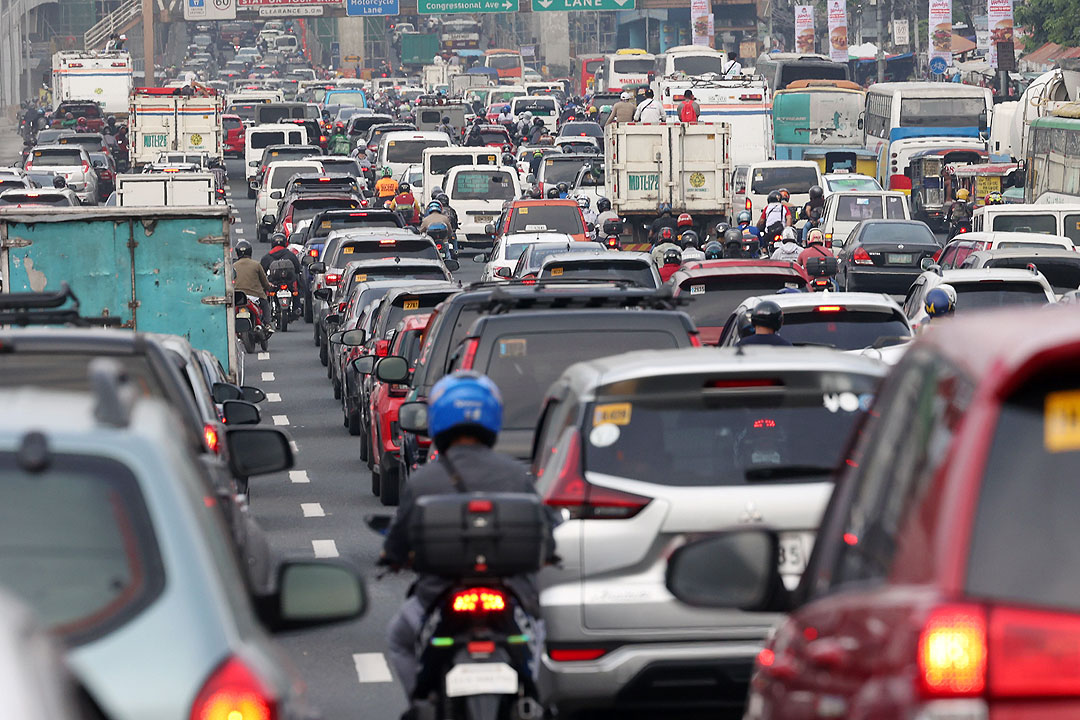Better road design can help prevent road rage — experts

By Beatriz Marie D. Cruz, Reporter
TRANSPORT industry advocates urged the government to focus on improving the country’s road infrastructure, making it inclusive for all modes of transportation to reduce heavy traffic and incidents of road rage.
“Road rage is a complex phenomenon, and its root causes are debatable. We view it, however, in the simplest way possible, as the result of competition for time and space,” Primo V. Morillo, convenor of The Passenger Forum, said in a Viber chat.
“When we talk about time on the road, it usually means speed for motorists and when the need for speed overrides safety, road rage and accidents happen. When we talk about road space, it is about sharing the road and prioritizing those who have less horsepower like pedestrians and cyclists,” he said.
Last month, lawmakers filed House Bill No. 8991, the proposed Anti-Road Rage Act which seeks harsher penalties — such as imprisonment of up to 2 years and fines up to P100,000 — on motorists guilty of dangerous and impulsive behavior.
Road rage incidents resulting in injury would incur penalties of imprisonment of up to 4 years and a fine of up to P250,000. If the incident results in death, the guilty will be jailed for up to 12 years and fine of up to P500,000.
But Mr. Morillo said there are already existing laws that punish criminal acts on the road. “We have laws against unjust vexation, against light and grave threats, against slight and grave physical injuries, among others.”
“We don’t think a new law is necessary to lessen the incidents of road rage,” he noted.
AltMobility director Ira Cruz said that improving and ensuring a more inclusive kind of road infrastructure is the better long-term solution to traffic and road rage incidents.
“Infrastructure dictates behavior and so people behave the way they do on the road primarily because of the way that roads are designed,” Mr. Cruz said via telephone.
He noted that the government’s policies on road usage and transportation remain “car-centric,” or tend to favor four-wheeled vehicles.
The Metro Manila Development Authority (MMDA), the government agency in charge of managing traffic and road transportation in the country, said last month that it is looking to convert bike lanes into shared lanes, as these lanes are “underutilized.”
Active transport groups opposed the plan and supported the need for exclusive lanes for bikes and motorcycles.
A Social Weather Stations (SWS) survey showed that one bike exists in every three households in the country and noted an increase to 7.3 million cyclists on the road in April 2022 compared with only 6.2 million in 2021.
However, Mr. Cruz said that at the stakeholders’ meeting he attended, there was resistance from the MMDA to exclusively dedicate a lane for bicycles. “They (MMDA) continued to fear that it will disappoint… or it will cause complaints coming from [four-wheeled vehicle] motorists,” he said.
Mr. Morillo emphasized: “When we talk about road space, it is about sharing the road and prioritizing those who have less horsepower like pedestrians and cyclists.”
Meanwhile, Joey A. Concepcion III, Private Sector Advisory Council (PSAC) lead for jobs, had said that traffic — given the growing number of vehicles on the road — is synonymous with economic activity.
But Mr. Morillo said: “Heavy traffic as a barometer of a productive economy is flawed.” He cited a 2018 study from the Japanese International Cooperation Agency (JICA) stating that the country suffers a P3.5-billion economic loss daily from heavy traffic.
“It’s very important for any city that there be multiple modes of transportation. That people are able to select their mode of transportation,” Mr. Cruz said.
Mr. Morillo also called for better implementation of traffic rules by training enforcers not to tolerate forms of bribery like kotong (extortion) or lagay (grease money) so that motorists will not escape penalty.
“Solving road rage requires that our citizens believe in the rule of law, trust that the law applies to all, and have faith that no one is above the law,” he said.



